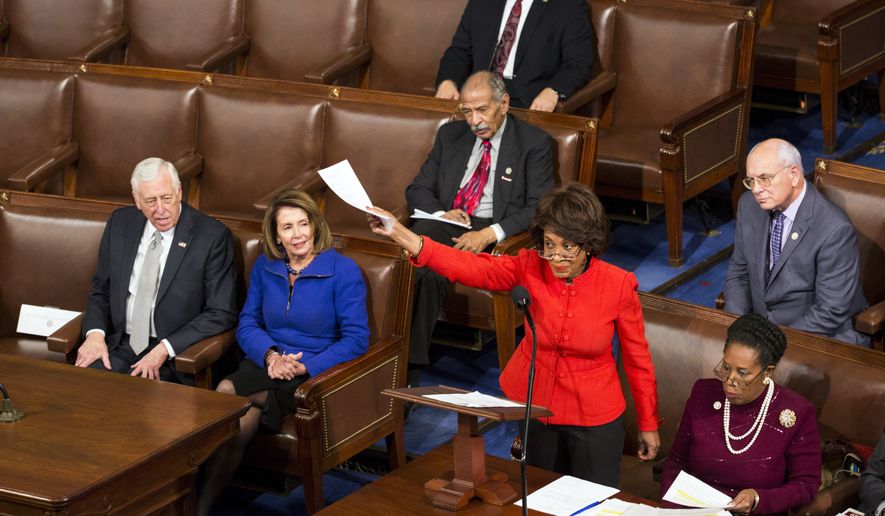OPINION:
To hear the mainstream media and bleeding-heart liberals tell it, Republicans who plan to object to Electoral College votes in the 2020 presidential election are all but committing treason.
Congress is set to certify the election results Wednesday, and a slew of Republicans — a dozen in the Senate, more than 100 in the House — plan to make their objections known.
Sen. Ted Cruz of Texas released Saturday a joint statement with 10 other GOP lawmakers announcing that they “intend to vote on January 6 to reject the electors from disputed states as not ‘regularly given’ and ‘lawfully certified’ (the statutory requisite), unless and until [an] emergency 10-day audit is completed.”
Meanwhile, two Republican members of the House told CNN last week they expect at least 140 of their colleagues to vote against counting the electoral votes showing that President-elect Joseph R. Biden won.
Democrats have gone ballistic, claiming that Republicans are seeking to thwart the republic and override the will of the people by objecting to the Electoral College’s certified results.
But that’s just what they did in 2001, in 2005 and in 2017 — after the last three Republican candidates won the White House.
Although congressional rules require that in order to file an objection, one member of both the House and the Senate must declare their intentions to do so, several House Democrats in 2001 tried to object without support from a member of the upper chamber.
In a joint session of Congress in January 2001, Rep. Alcee Hastings objected to the Electoral College votes from Florida, which that year put then-Gov. George W. Bush of Texas over the magic 270 number.
“The objection is in writing, signed by a number of members of the House of Representatives, but not by a member of the Senate,” he said.
Rep. Sheila Jackson Lee also objected, saying: “It is in writing and it is signed by myself on behalf of my diverse constituents and the millions of Americans who have been disenfranchised by Florida’s inaccurate vote count.”
Then Rep. Maxine Waters blatantly disregarded the rules (as she often does). “The objection is in writing, and I do not care that it is not signed by a member of the Senate,” she spat.
But in a rare moment of maturity, 2000 election loser Al Gore — who presided over the joint session before growing a beard and disappearing into the wilderness — dressed Mrs. Waters down, saying: “The chair will advise that the rules do care.”
Things were different in 2005, after Mr. Bush won re-election over Sen. John Kerry of Massachusetts by an electoral vote of 286-251. Mr. Bush had won 20 crucial Electoral College votes in Ohio in his hunt for 270, winning the Buckeye State by just more than 118,000 of the 5.6 million votes cast.
That time, Rep. Stephanie Tubbs Jones and Sen. Barbara Boxer joined forces to challenge Mr. Bush’s victory in Ohio claiming (wait for it!) — voter irregularities.
“The objection today is raised,” Mrs. Tubbs Jones said, “because there are irregularities across this country with regard to voting. And we as a Congress have an obligation to step up to the plate and correct them.”
Mrs. Waters was there again, too, to object. “Mr. Speaker and members, I dedicate my objection to Ohio’s electoral votes to Mr. Michael Moore, the producer of the documentary ‘9-11,” she said, referring to the liberal film director.
Added Rep. John Dingell: “First of all we are here because not a single election official in Ohio has given us any explanation for the massive and widespread irregularity in the state, no explanation for the machines in Mahoning County, that recorded Kerry votes for Bush.”
Sound familiar?
Much the same thing happened in 2017, after Donald Trump defeated Hillary Clinton. Then-Vice President Joseph R. Biden oversaw the certification of the Electoral College votes. While some House Democrats challenged the electoral tally, no senator joined their objection.
When Rep. Pramila Jayapal objected, Mr. Biden told her flatly: “It is over.”
But the mainstream media praised Democrats at the time. On Jan. 6, 2017, PBS wrote: “House Democrats objected to the votes from at least 10 states, raising issues of voter suppression as well as American intelligence showing that Russia tried to sway the election in favor of Trump. In each case, their objections were denied because they didn’t have the support of any senators.”
The mechanism to object is clear. The Electoral Count Act of 1887 provides members of Congress a pathway to legally object to electoral votes under the U.S. Constitution, as it should.
But once again, Democrats’ hypocrisy — their do-as-we-say, not-as-we-do mentality — is on full display.
• Joseph Curl covered the White House and politics for a decade for The Washington Times. He can be reached at josephcurl@gmail.com and on Twitter @josephcurl.




Please read our comment policy before commenting.